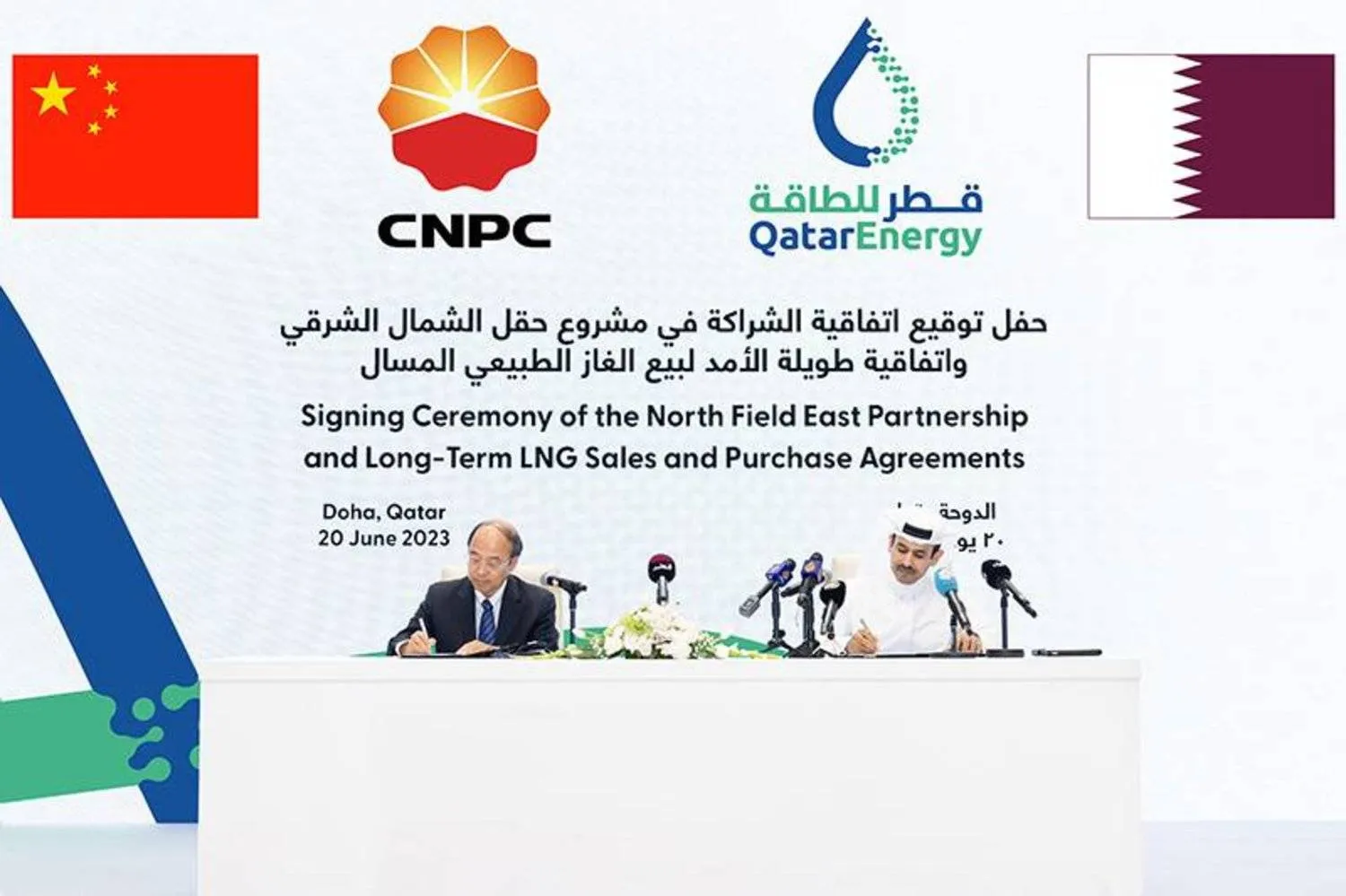Qatar has secured a second huge gas supply deal with a Chinese state-controlled company in less than a year.
Qatar sealed a 27-year agreement with China National Petroleum Corporation (CNPC), under which China will purchase 4 million metric tons of liquefied natural gas (LNG).
China is the biggest customer of Qatar's LNG and one of the world's top LNG importers.
"Qatar will supply four million tons annually of natural gas from the North Field East Expansion Project to China over 27 years," Qatar's Energy Minister Saad al-Kaabi told a signing ceremony in Doha.
“This will become the second LNG sale and purchase agreement to China within the North Field East Expansion Project,” added al-Kaabi, who is also the CEO of firm QatarEnergy.
Last November, Sinopec signed a deal with QatarEnergy to purchase 4 million tons of LNG annually for 27 years - the longest LNG contract signed by Qatar.
In April, Sinopec became the first Asian firm to get a stake in the North Field East expansion, gaining a 5% stake.
Kaabi announced on Tuesday another deal to sell and purchase shares by which CNPC becomes a partner in the North Field East Expansion Project, the world's biggest natural gas field.
The North Field contains 10% of the natural gas reserves in the world and extends under the Gulf into Iranian territory, according to QatarEnergy estimates.
The expansion worth $28.75 billion will ramp up Qatar's liquefaction capacity to 126 million tons per year by 2027.
This is QatarEnergy’s third deal to export LNG from the expansion project to an Asian buyer.
The Financial Times was the first to report this deal.









